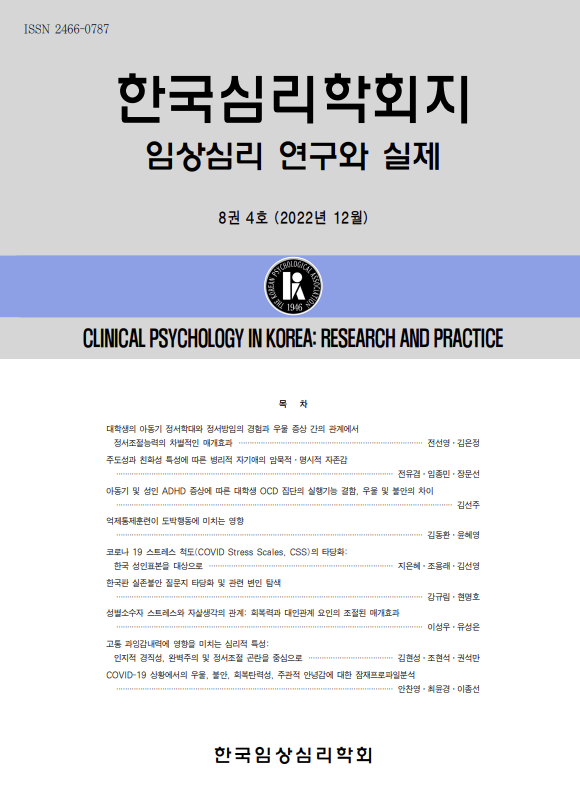open access
메뉴
open access
메뉴 ISSN : 2466-0787
ISSN : 2466-0787
This study aimed to determine the effect of inhibitory control training on the inhibitory control and gambling behavior of problem gamblers. The participants were 20 adults over the age of 18 with experience in Powerball and ladder games, namely illegal online gambling games who scored three or higher on the Korean version of the Canadian Problem Gambling Index (K-CPGI). Participants were randomly assigned to the training group (Gambling NoGo, n=10) or the control group (Gambling Go, n=10). The participants’ inhibitory control and gambling behavior were measured before and after inhibitory control training with a stop signal task (SST) and a slot machine game (AllJ slots 2.2), respectively. The training group (Gambling no go condition) received inhibitory control training to not react when a gambling stimulus was presented and react when a neutral stimulus was presented, whereas the control group (Gambling go condition) received reverse training. Results indicated that after training, inhibitory control increased in the training group compared to the control group. In addition, there was a significant decrease in the gambling frequency of the training group compared to the control group. These results suggest that inhibitory control training may affect the inhibition ability and gambling behavior of problem gamblers. The limitations of this study and suggestions for future research are discussed in the paper.